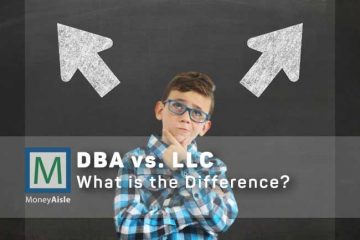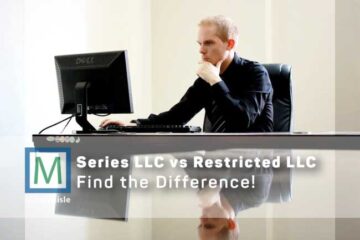Here we’ll find whether an LLC is a partnership or a corporation. When you’re starting a business, it can be difficult to figure out what type of legal structure is best for you. There are a lot of important questions that need to be answered. Let’s break it down in the easiest way possible.
What is considered a partnership? A partnership is a business entity owned by two or more persons. All partners in the partnership are responsible for the management and financial success of the business.
Is an LLC a Type of Corporation? No. An LLC, or limited liability company, is a legal structure that offers the benefits of both a corporation and a partnership.
What is an LLC partnership tax?LLC partnerships can be taxed in either of two ways: as a pass-through entity or as a corporation. If the LLC is taxed as a pass-through entity, the profits and losses are passed through to each of the individual partners.
What are Partnerships and Types of Partnerships?
A partnership is a form of business organization in which two or more individuals, called partners, manage and operate a business together. Partnerships may be either general partnerships, limited partnerships, or limited liability partnerships.
General partners are personally liable for all of the debts and obligations of the partnership; in a limited partnership, only the managing partner is liable; and in a limited liability partnership, each partner’s liability is limited.
There are Types of Partnership That are Commonly Used:
- General Partnership
- Limited Liability Partnership (LLP)
- Limited Partnership
General Partnership
A general partnership is the most common type of partnership. In this form, two or more individuals come together to run a business and share in its profits and losses.
All partners are personally liable for the debts of the business, meaning each partner’s personal assets can be used to pay off any liabilities if the business fails.
Limited Liability Partnership (LLP)
A limited liability partnership is a type of partnership that allows partners to limit their liability for the debts of the partnership.
In this type of partnership, each partner is only liable up to a certain amount and their personal assets are protected. For further details, you can read an article on: LLP vs LLC.
Limited Partnership
A limited partnership is a type of partnership in which one or more partners are only liable for the debts and obligations of the business to the extent of their investment.
This means that if the partnership fails, the limited partner’s personal assets will not be used to pay off any liabilities.
Difference Between LLC & Partnership
The main difference between an LLC and a partnership is the level of liability each member has. In an LLC, members are not liable for the debts and obligations of the company, and their personal assets cannot be used to pay off any liabilities.
In a partnership, each partner is personally liable for all of the debts and obligations of the business.
LLC vs Partnership
| LLC vs Partnership | Partnership | LLC | |
| 1. In a partnership, two or more people come together to operate a business. 2. Partners are personally liable for all of the debts and obligations of the partnership. 3. Partners in a partnership are jointly responsible for making management decisions. 4. Partnerships are traditionally taxed as a pass-through entity. 5. Partnerships may be either general partnerships, limited partnerships, or limited liability partnerships. | 1. In an LLC, one person can own and control the entire business. 2. LLC members are not personally liable for the debts of the business. 3. LLC members can each have a degree of autonomy in making decisions. 4. LLCs may be taxed as either a pass-through or a corporation. 5. LLCs may be organized as a single-member LLC, multi-member LLC, or series. |
LLC Partnership Examples
An example of an LLC partnership is when two or more individuals come together to form a business and share in the profits and losses. In this arrangement, one partner is usually the managing partner and the other partners do not have any management roles.
All of the members are equally liable for the debts of the business and their personal assets may be used to pay off any liabilities.
Another example of an LLC partnership is when two or more individuals come together to form a business, but the managing partner is only responsible for their own obligations and liabilities.
The other members are not liable for any of the debts or obligations of the business, but they may be entitled to a share in the profits and losses.
LLC Partnership Taxes
LLC partnerships can be taxed in either of two ways: as a pass-through entity or as a corporation. If the LLC is taxed as a pass-through entity, the profits and losses are passed through to each of the individual partners.
This means that each partner is responsible for paying taxes on their share of the profits and losses.
If the LLC is taxed as a corporation, the business itself will be liable for paying taxes on its profits and losses. This means that the individual members are not responsible for paying any taxes, but the business must still report its income to the IRS.
The Bottom Line
LLC partnerships are a great way to structure a business while providing additional layers of protection and security for the partners. They can be taxed in either of two ways, and it is important to understand the differences in order to make the best choice for your business.
The main process of an LLC partnership is such as
- Determine the number of partners and their respective roles
- Decide on the capital structure and terms of each partner’s investment
- Draft the operating agreement outlining all of the rights, duties, and obligations of each party
- File articles of organization with the Secretary of State
- Register with the local taxing authority and obtain the necessary permits and licenses
- Open a business bank account
- Conduct regular meetings and keep records of all transactions
- File annual reports with the IRS and state agencies
- Make sure to comply with all rules and regulations
- Pay taxes and make other necessary payments on time.
Frequently Asked Questions (FAQs)
What advantage does an LLC have over a partnership?
An LLC provides additional protection to the members, as their personal assets are not liable for any debts or obligations of the business.
This is in contrast to a general partnership, where the partners have unlimited personal liability. An LLC may also be more attractive to potential investors or lenders due to its flexible management and tax structure.
Can an LLC have only one member?
Yes, an LLC can have one member. This type of LLC is known as a single-member LLC, and the owner may be referred to as either a sole proprietor or a single-member LLC, depending on the laws of the state in which it is registered. Single-member LLCs may be more attractive to potential investors or lenders due to their tax advantages.

Murphy Brad, is a legal content writer with expertise in environmental law, criminal law, and business associations. She holds a Juris Doctorate from William & Mary Law School and is licensed to practice in Tennessee. Murphy has taught legal research, writing, and citations to law students and has contributed to the Environmental Law & Policy Review. With a background in philosophy and political science, Murphy brings a well-rounded perspective to her legal writing projects.





